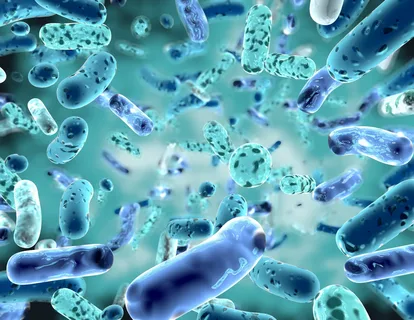The animal probiotics market is experiencing significant growth, driven by a heightened focus on animal health, welfare, and sustainable farming practices. Probiotics, defined as live microorganisms that provide health benefits when administered in adequate amounts, are increasingly being recognized for their role in enhancing the well being of livestock and pets.
Understanding Probiotics
Probiotics are often referred to as "good" bacteria. They are live microorganisms that, when consumed in sufficient quantities, can confer health benefits to the host. The most commonly used probiotic strains in animal feed include species of Lactobacillus, Bifidobacterium, and Enterococcus. These beneficial microbes play a crucial role in maintaining a balanced gut microbiome, which is essential for optimal digestion and immune function.
The gut microbiome is a complex ecosystem comprising trillions of microorganisms that inhabit the digestive tract. This community of bacteria is vital for breaking down food, synthesizing essential nutrients, and protecting against pathogens. An imbalance in this microbiome, known as dysbiosis, can lead to a range of health issues, including gastrointestinal disorders, reduced nutrient absorption, and weakened immunity.
The Science Behind Probiotics in Animal Health
-
Gut Health and Digestion
Probiotics contribute to gut health by promoting the growth of beneficial bacteria and inhibiting the proliferation of harmful pathogens. They enhance digestion by breaking down complex carbohydrates and improving nutrient absorption. For instance, certain strains of Lactobacillus have been shown to improve the digestibility of feed, leading to better growth performance in livestock. -
Immune System Support
A healthy gut microbiome is closely linked to a robust immune system. Probiotics stimulate the production of antibodies and enhance the activity of immune cells, such as macrophages and T lymphocytes. Research has demonstrated that administering probiotics to animals can lead to a lower incidence of infections and diseases, reducing the need for antibiotics and other medications. -
Reduction of Stress and Improving Welfare
Stress can negatively impact animal health, leading to reduced growth rates and increased susceptibility to disease. Probiotics have been shown to help alleviate stress in animals by promoting a balanced gut microbiome, which can positively influence behavior and overall well-being. For example, studies indicate that probiotic supplementation can reduce stress-related behaviors in pigs and poultry, leading to better growth and productivity. -
Enhancing Nutritional Value
Probiotics not only aid in digestion but also contribute to the nutritional value of animal products. They can increase the bioavailability of vitamins and minerals, improving the overall nutrient profile of meat, milk, and eggs. This enhancement can lead to healthier food products for consumers and better economic returns for producers.
Market Insights
-
Growing Demand for Natural Alternatives
With increasing concerns over antibiotic resistance and the use of synthetic additives in animal feed, there is a growing demand for natural alternatives. Probiotics are being viewed as a safe and effective way to enhance animal health without contributing to antibiotic resistance. This shift in consumer preferences is driving the growth of the Animal Probiotics Market. -
Expansion of the Pet Probiotics Segment
The pet industry is experiencing rapid growth, with pet owners increasingly prioritizing their pets' health and well-being. This trend has led to a surge in demand for pet probiotics, as owners seek natural solutions to improve their pets' digestive health and overall quality of life. This segment is expected to witness significant growth in the coming years, offering lucrative opportunities for manufacturers. -
Research and Development Initiatives
Ongoing research into the specific health benefits of various probiotic strains is crucial for the market's advancement. Scientific studies are helping to identify the most effective strains for different animal species and health conditions. Companies that invest in research and development will be better positioned to create targeted probiotic products that meet the evolving needs of the market. -
Regulatory Support and Compliance
As the focus on animal welfare and sustainable farming increases, regulatory bodies are becoming more supportive of probiotics as safe and beneficial additives in animal nutrition. This regulatory backing enhances consumer confidence and encourages investment in probiotic research and development. However, companies must navigate complex regulatory environments to ensure compliance and successful product launches. -
Technological Innovations
Advancements in technology are facilitating the development of more effective probiotic formulations. Innovations such as microencapsulation techniques help protect probiotics from environmental factors, ensuring their viability and efficacy during storage and digestion. These technological enhancements are crucial for expanding the range of applications for probiotics in various animal species.
Challenges Ahead
Despite the promising outlook for the Animal Probiotics Market, several challenges must be addressed. Variability in the effectiveness of different probiotic strains among various species and conditions can complicate product development.



